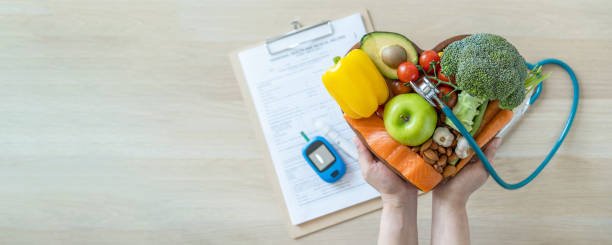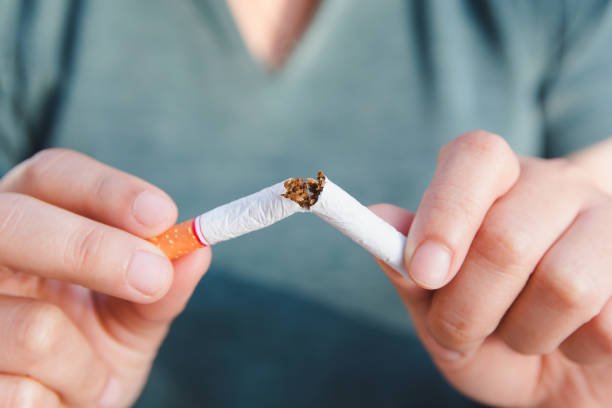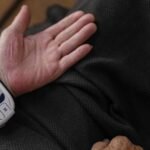
How to Prevent Myocardial Infarction? Premonitory Signs of Myocardial Infarction. Comprehensive Compilation of Preventive Diet and Exercise
The temperature drops sharply from time to time in winter, so myocardial infarction always occurs quickly and quickly. Symptoms such as angina pectoris, cold sweats, vomiting, and dizziness may appear before the attack. However, some people have very mild symptoms before the onset of the disease, or even almost no warning signs. According to the National Health Service of the Ministry of Health and Welfare, acute myocardial infarction not only occurs in the elderly, but has gradually begun to occur in younger people in recent years.
There are two main causes of myocardial infarction in young people. One is smoking and the other is hypercholesterolemia. They are both caused by poor living habits and eating habits. Therefore, it is urgent to prevent myocardial infarction! This article summarizes the key points on how to prevent myocardial infarction and protect your heart health together!
What are the signs of myocardial infarction?
Myocardial infarction will produce different symptoms before the attack due to gender differences and other factors. The following are 9 common precursors of myocardial infarction:
- Chest pain (angina)
- Shortness of breath, difficulty breathing
- Feel sick and vomit
- Palpitations
- Sweating
- Anxiety
- Dizziness
- Arrhythmia
3 ways to prevent myocardial infarction
There are many ways to prevent myocardial infarction. In addition to adjusting their daily diet, people at high risk of myocardial infarction can also avoid myocardial infarction through moderate exercise. The following are the main principles of exercise and diet:
1.Diet strategy to prevent myocardial infarction
Groups at high risk of myocardial infarction should not only eat a light diet and avoid overeating, but also eat small and frequent meals to avoid excessive satiety. At the same time, pay attention to the following dietary principles:
- Stay away from high-cholesterol foods:
Foods containing high cholesterol, such as egg yolks, crab roe and offal, can easily block or narrow blood vessels and cause atherosclerosis, leading to myocardial infarction or stroke. - Low-salt diet:
Avoid regular consumption of pickled and canned foods, such as pickled cucumbers, tomato sauce, etc. Such foods can also retain water, increase blood pressure, and increase cardiovascular burden. - Avoid high-fat foods:
For patients with other cardiovascular diseases, high-fat foods such as chicken skin, duck skin, and fatty meat should be avoided. - Eat more fiber-rich foods:
High-fiber foods can help the body digest, keep defecation smooth, and avoid straining to defecate, which increases the burden on the heart. - Choose foods and good oils with unsaturated fatty acids:
Consume deep-sea fish and oils rich in unsaturated fatty acids, including soybean oil, peanut oil, salad oil, sunflower oil, olive oil or canola oil.

2.Exercise instructions for groups at high risk of myocardial infarction
Regular exercise can reduce stress, promote blood circulation, reduce thrombosis, improve cardiopulmonary function, and also reduce blood cholesterol and blood fat. However, you must still pay attention to the following points when exercising:
- Exercise can start from 5 to 15 minutes each time, and then gradually increase to 30 to 60 minutes, 4 to 5 times a week. You can start with walking.
- Avoid any exercise that requires sudden exertion, such as walking, jogging, cycling or swimming.
- You must do 5 minutes of warm-up exercise before exercising.
- Arrange moderate leisure activities to reduce stress.
- It is forbidden to exercise within one hour after eating or taking medicine, and do not take a bath within one hour after exercise.
- Avoid activities in environments that are too hot or too cold, such as saunas and hot springs, which are not suitable for patients with heart disease.
- If you feel any discomfort, do not force yourself to exercise.
- Before exercising, you can take 1 nitroglycerin tablet in your mouth and carry it with you.
- If you have chest discomfort, fatigue, difficulty breathing, dizziness, unsteady gait, irregular heartbeat or more than 120 beats/minute, you must stop exercising immediately.
- If discomfort occurs after exercise, you should immediately stop the activity, sit down and rest; if it does not improve, take 1 sublingual nitroglycerin tablet as soon as possible. If there is no improvement after taking 3 tablets in a row, you must be accompanied by someone to seek emergency medical treatment.

3.Other methods to prevent myocardial infarction
- Weight control
- Relieve pressure
- Drink less
- Quit smoking
- Measure blood pressure regularly
- Check cholesterol













